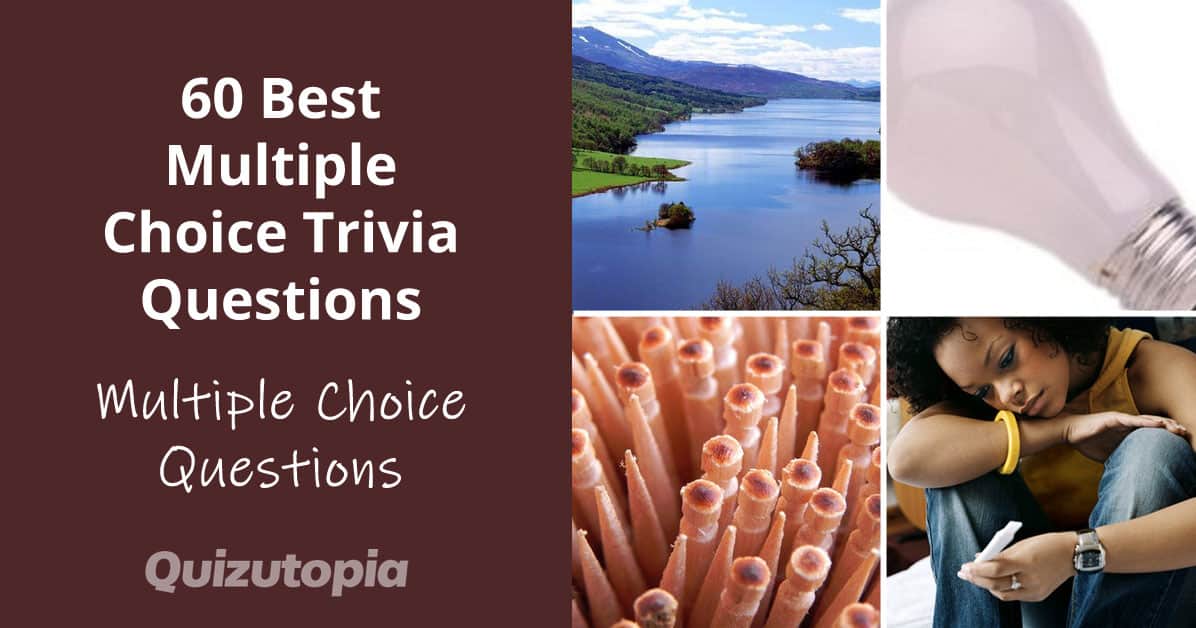Get ready to test your knowledge of the intricate web of life on our planet with the Ecology Trivia Quiz. The field of ecology explores the relationships between organisms and their environment, shedding light on the delicate balance that sustains life as we know it. From the tiniest microorganisms to sprawling ecosystems, understanding ecology is essential for conserving and protecting our natural world.
In this quiz, we’ve gathered fifteen thought-provoking questions that will challenge your understanding of ecological concepts, species interactions, and environmental phenomena. From the intricate workings of food webs and energy flow to the impact of human activities on ecosystems, we’ll explore a wide range of topics that highlight the interconnectedness of all living things.
Whether you’re a nature enthusiast, a student of environmental science, or simply curious about the natural world, this quiz will put your ecological knowledge to the test. Get ready to dive into the fascinating realm of ecology and discover how different organisms and environments intertwine to create the fabric of life on Earth.
So, sharpen your ecological understanding, embrace your curiosity, and prepare to uncover the hidden secrets of our planet’s intricate ecosystems. Are you ready to embark on this enlightening journey and demonstrate your ecological expertise? Let’s dive into the Ecology Trivia Quiz and see how well you understand the world around us.

Subscribe to our mailing list to receive FREE exclusive quizzes and offers!
- What is the study of the relationships between living organisms and their environment?
- Geology
- Ecology
- Biology
- Zoology
The correct answer is Ecology.
Ecology is a branch of biology that studies the interactions among organisms and their biophysical environment. - What is the term for a group of organisms of the same species living in the same area?
- Ecosystem
- Community
- Population
- Biosphere
The correct answer is Population.
A population consists of individuals of the same species living in a specific area and interacting with each other. - Which of these is not an abiotic factor in an ecosystem?
- Soil
- Light
- Temperature
- Predation
The correct answer is Predation.
Abiotic factors are non-living components of an ecosystem, such as temperature, soil, and light. Predation is a biotic factor, as it involves living organisms. - What is the process by which plants convert sunlight into usable energy?
- Photosynthesis
- Decomposition
- Transpiration
- Respiration
The correct answer is Photosynthesis.
Photosynthesis is the process by which plants, algae, and some bacteria convert sunlight, carbon dioxide, and water into glucose and oxygen.
- What is the term for a close, long-term interaction between two different species?
- Competition
- Mutualism
- Symbiosis
- Predation
The correct answer is Symbiosis.
Symbiosis is a close, long-term relationship between two different species, which can be beneficial, harmful, or neutral to one or both organisms. - What is the term for the maximum number of individuals of a species that an environment can support?
- Population density
- Ecological niche
- Biodiversity
- Carrying capacity
The correct answer is Carrying capacity.
Carrying capacity is the maximum number of individuals of a species that a specific environment can support, based on available resources and environmental conditions. - What is the term for the role an organism plays in its environment?
- Ecological niche
- Trophic level
- Habitat
- Food chain
The correct answer is Ecological niche.
An ecological niche refers to the role an organism plays in its environment, including its habitat, diet, and interactions with other organisms. - Which of these is not a type of symbiosis?
- Parasitism
- Mutualism
- Commensalism
- Predation
The correct answer is Predation.
Predation is a type of interaction between species, but it is not a form of symbiosis. Symbiosis includes mutualism, commensalism, and parasitism. - What is the term for a group of different species living in the same area?
- Community
- Biosphere
- Population
- Ecosystem
The correct answer is Community.
A community consists of different species living in the same area and interacting with each other. - Which of the following is not a greenhouse gas?
- Oxygen
- Nitrous oxide
- Methane
- Carbon dioxide
The correct answer is Oxygen.
Greenhouse gases include carbon dioxide, methane, and nitrous oxide, which trap heat in the Earth’s atmosphere. Oxygen is not a greenhouse gas.
- What is the term for the variety of life on Earth?
- Ecosystem
- Biodiversity
- Biome
- Habitat
The correct answer is Biodiversity.
Biodiversity refers to the variety of life on Earth, including the diversity of species, genes, and ecosystems. - What is the process by which water is lost from plants through tiny pores called stomata?
- Evaporation
- Transpiration
- Precipitation
- Condensation
The correct answer is Transpiration.
Transpiration is the process by which water is lost from plants through tiny pores called stomata, mainly on the underside of leaves. - What is the term for the process by which nutrients are returned to the soil after organisms die and decompose?
- Respiration
- Nutrient cycling
- Photosynthesis
- Transpiration
The correct answer is Nutrient cycling.
Nutrient cycling is the process by which nutrients are returned to the soil after organisms die and decompose, ensuring that nutrients are available for future generations of organisms. - Which of the following is not a type of ecosystem?
- Desert
- Tundra
- Volcano
- Rainforest
The correct answer is Volcano.
Desert, tundra, and rainforest are types of ecosystems. A volcano is a geological feature that can be found within various ecosystems.
- What is the term for the process by which carbon is exchanged between the Earth’s atmosphere, oceans, and land?
- Nitrogen cycle
- Water cycle
- Phosphorus cycle
- Carbon cycle
The correct answer is Carbon cycle.
The carbon cycle is the process by which carbon is exchanged between the Earth’s atmosphere, oceans, and land through processes such as photosynthesis, respiration, and decomposition.









